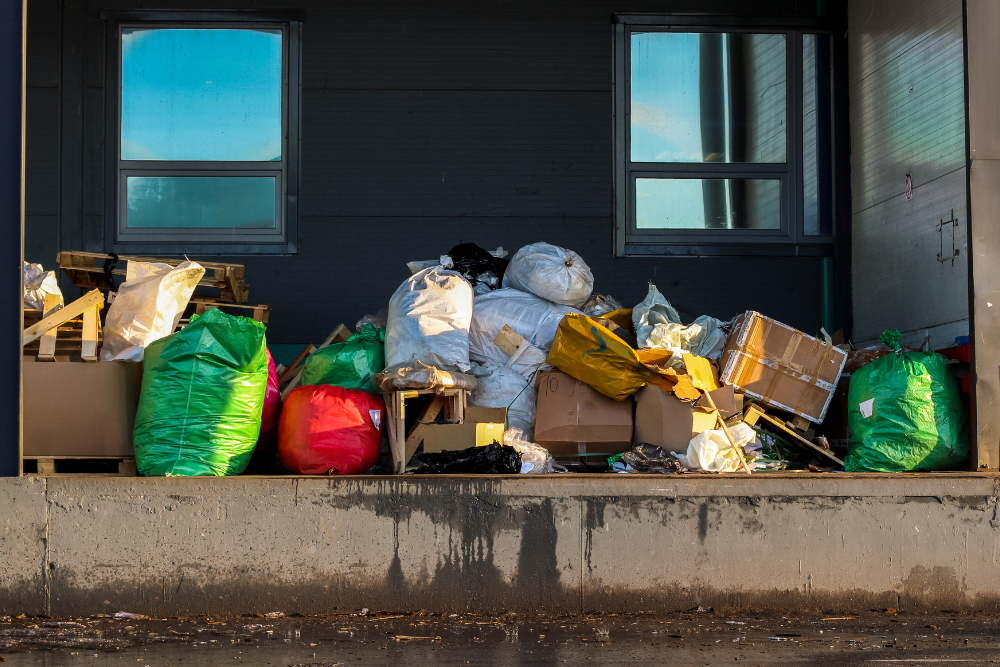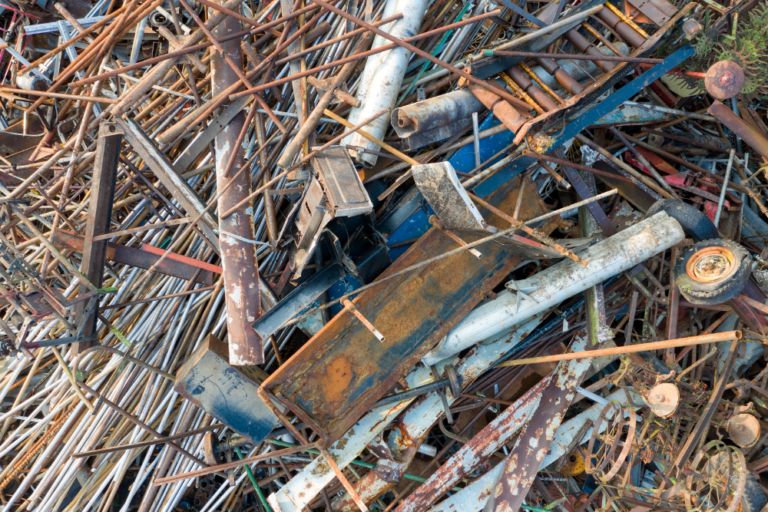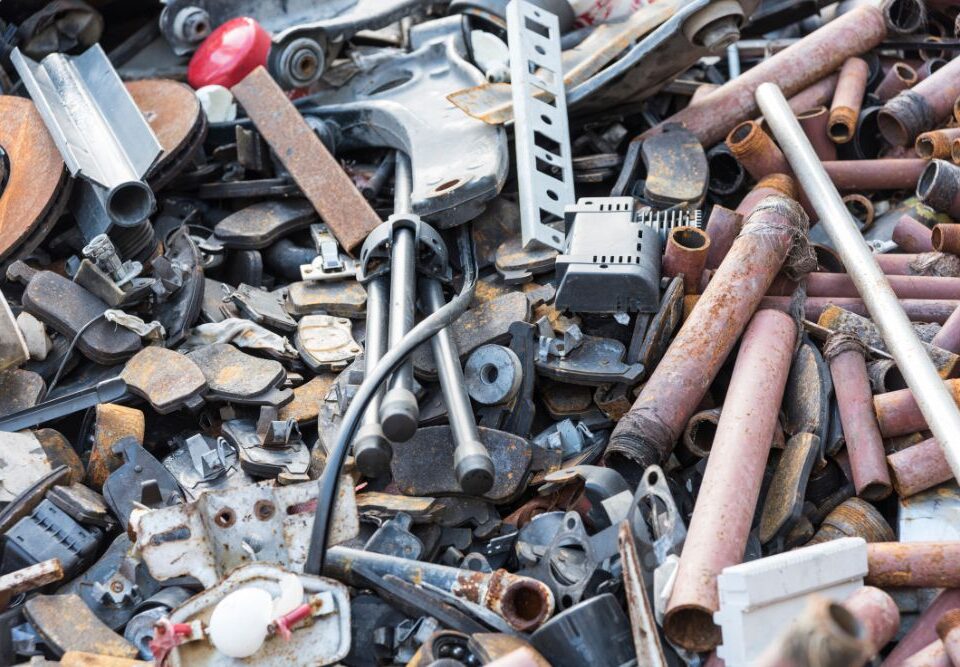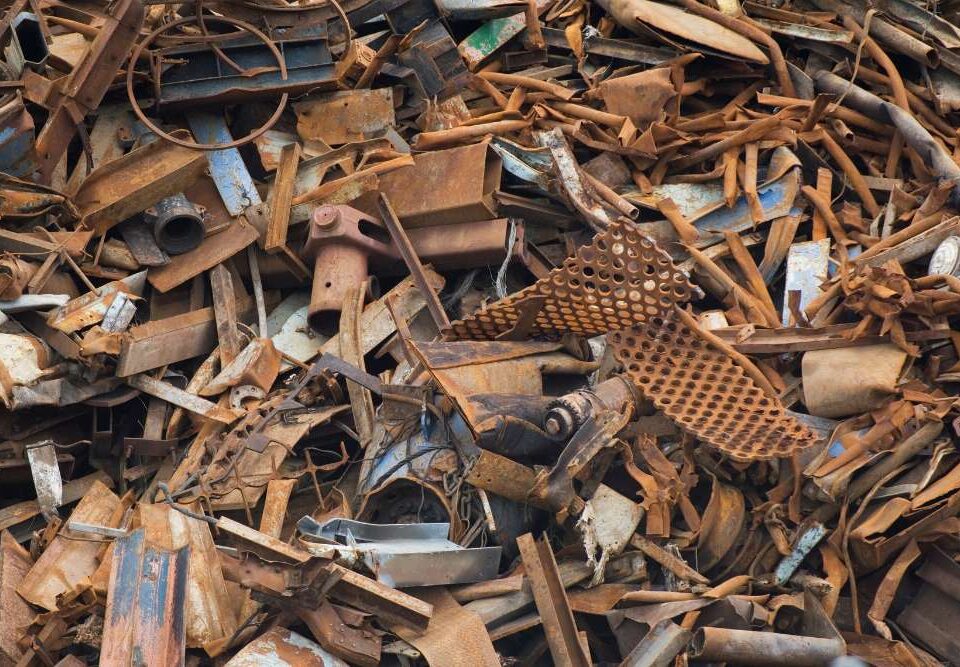
What You Can Do to Support Eco-Friendly Junk Removal in Your Area
September 19, 2025
How to Minimize Your Environmental Impact with Junk Removal
September 19, 2025How Recycling Metals Reduces the Need for Mining and Conserves Resources
In today’s world, where resource depletion and environmental challenges are pressing issues, the role of recycling has never been more significant. Metal recycling, in particular, stands out as a practical and effective way to reduce dependence on mining and conserve natural resources. Instead of continuously extracting raw materials from the earth, recycled metals allow industries to meet demand while easing the strain on ecosystems. By reintroducing scrap metals back into production cycles, we not only conserve valuable materials but also reduce pollution and energy consumption. Recycling metals is more than waste management—it is a strategy for sustainability.
The Link Between Mining and Environmental Damage
Mining may fuel industries, but it often leaves scars on the planet. From open-pit mines to underground tunnels, extraction disrupts ecosystems, displaces wildlife, and pollutes soil and water. Toxic byproducts such as mercury and arsenic frequently enter nearby waterways, creating long-term environmental challenges. Communities located near mining operations often experience degraded air quality and compromised health as a result.
Recycling metals reduces the reliance on such destructive practices. Every piece of scrap metal recycled represents less demand for fresh mining projects. When businesses and households choose recycling over disposal, they actively prevent further harm caused by mineral extraction. By linking waste reduction to environmental protection, recycling transforms old materials into a shield against future damage. The practice addresses both immediate waste management needs and long-term ecological concerns, making it a cornerstone of modern sustainability.
Conserving Non Renewable Resources Through Metal Recycling
Metals such as copper, aluminum, and iron are finite resources. Mining them endlessly is not sustainable, as reserves deplete over time. Recycling provides a powerful way to extend the life of these resources, ensuring they remain available for future generations. Instead of digging deeper and consuming more land, recycling recaptures what has already been produced.
This conservation effort also reduces the environmental strain linked to raw extraction. Mining operations require vast amounts of energy and water, further draining natural resources. Recycling metals uses significantly less energy and requires minimal water, making it an environmentally friendly alternative. Each recycled item contributes to resource preservation on a large scale. By keeping metals in circulation, recycling creates a closed-loop system where the same materials serve multiple lifespans without exhausting what nature has provided.

Energy Savings as a Result of Recycling Metals
Producing metals from raw ore demands enormous amounts of energy. Smelting, refining, and transporting materials all contribute to high energy consumption and significant greenhouse gas emissions. In contrast, recycling metals requires far less energy. For example, recycling aluminum uses up to 95 percent less energy compared to extracting it from bauxite ore.
These energy savings translate into reduced emissions and a smaller carbon footprint. By minimizing the demand for energy-intensive mining processes, recycling makes industrial production more sustainable. When households and businesses recycle scrap metal, they indirectly lower fossil fuel consumption and reduce air pollution. The practice not only saves valuable energy but also contributes to broader climate change mitigation efforts. Recycling metals represents one of the most efficient strategies for reducing the environmental cost of manufacturing while maintaining material supply chains.
Reducing Greenhouse Gas Emissions With Recycling
The production of metals from raw materials releases massive amounts of greenhouse gases. Mining equipment, smelting furnaces, and transportation all burn fossil fuels, releasing carbon dioxide and methane into the atmosphere. This chain of emissions contributes significantly to climate change. Recycling metals interrupts this cycle by offering a cleaner, lower-emission alternative.
By reusing existing materials, recycling drastically cuts the need for new extraction and production. The reduction in energy use directly correlates with fewer emissions released into the air. Every ton of recycled steel or aluminum means fewer pollutants and cleaner skies. This benefit is not abstract—it has measurable effects on global emission targets. Choosing recycling over mining-driven production is a direct way for individuals and industries to align their actions with environmental responsibility and climate-conscious goals.
Recycling Metals Protects Natural Habitats
Mining operations often take place in biodiverse areas, leading to the destruction of forests, wetlands, and habitats that support wildlife. Roads, machinery, and excavation disrupt ecosystems and displace species that may never recover. Once an area is mined, it often becomes barren, unable to support the life it once did.
Metal recycling offers a way to protect these vulnerable environments. By reusing materials already in circulation, the need to disturb untouched lands decreases. Recycling acts as a safeguard against unnecessary habitat destruction. Every household appliance, vehicle part, or construction scrap that is recycled translates into less intrusion into natural spaces. Protecting biodiversity requires collective effort, and recycling plays an essential role in maintaining balance between human needs and ecological preservation. Through recycling, communities take an active stand against deforestation and species loss linked to mining.
Economic Benefits of Recycling Metals
Recycling metals isn’t just environmentally sound—it makes financial sense too. The recycling industry creates jobs, stimulates local economies, and provides raw materials at a lower cost than mining. Collecting, sorting, and processing scrap metals generate employment opportunities across multiple sectors. These jobs often remain local, strengthening community economies.
For manufacturers, recycled metals represent a cost-effective alternative to newly mined materials. Lower energy requirements and reduced production costs make recycling an attractive option for businesses aiming to save money while maintaining efficiency. Additionally, the resale of recycled metals contributes to financial growth. By supporting recycling efforts, both individuals and businesses tap into a system that benefits the environment and the economy alike. This synergy underscores how sustainability and profitability can align when metal recycling is prioritized over continuous mining practices.
Recycling Metals Extends Product Life Cycles
Every metal item has a story. From cars to appliances, these products eventually reach the end of their primary use. Recycling allows their story to continue by transforming old materials into new products. This process extends product life cycles, ensuring that resources remain in use rather than discarded prematurely.
Instead of contributing to waste, recycled metals are reborn into construction materials, new electronics, and everyday items. This cycle of reuse reduces the demand for mining and conserves raw resources. It also encourages innovation, as industries explore creative ways to repurpose existing materials. The more products are recycled, the longer resources remain active in production cycles. Extending product life through recycling emphasizes sustainability and challenges the culture of disposability. Metals, once viewed as waste, become the foundation for a future built on resourcefulness and conservation.
Recycling Metals Reduces Waste in Landfills
Landfills are not designed to handle metals effectively. Items like appliances, tools, and electronics take up valuable space and degrade slowly, sometimes releasing harmful substances into the soil and groundwater. The presence of metal waste in landfills accelerates pollution and limits landfill capacity for materials that cannot be recycled.
Recycling metals keeps these bulky, long-lasting items out of landfills, preventing contamination and freeing space for true non-recyclables. It transforms waste management into a cleaner, more efficient process. The impact is especially significant in urban areas where landfill space is limited. Reducing landfill reliance through recycling protects the environment while addressing growing waste management challenges. Metal recycling, therefore, plays a dual role: conserving resources and maintaining healthier, more sustainable communities.
Building a Culture of Sustainability Through Recycling
Sustainability is not just about policy—it’s about daily actions that reflect a long-term vision. Recycling metals encourages individuals and businesses to see waste differently, fostering a culture where resourcefulness is valued. When communities prioritize recycling, they build habits that influence broader environmental change.
This cultural shift reinforces the idea that every action matters. Sorting scrap, choosing eco-friendly junk removal, and supporting recycling initiatives create ripple effects. Over time, these practices normalize sustainable behavior and inspire innovation. Building a culture of sustainability through recycling requires participation at every level, from households to corporations. It’s a collective commitment to preserve resources and protect the planet. By embracing recycling as a standard, communities establish a foundation where conservation is not just a goal but a shared responsibility.
The Future of Resource Conservation Through Recycling
As global demand for metals continues to rise, the future of resource conservation will depend heavily on recycling. Advances in technology are making it easier to recover metals from complex products like electronics, increasing the potential for recycling programs. Governments and businesses are recognizing the importance of building circular economies where materials are continuously reused.
The shift toward a sustainable future requires widespread participation. Individuals must embrace recycling as part of everyday life, while industries must prioritize eco-friendly manufacturing. With greater awareness and investment, recycling metals can become the cornerstone of resource conservation efforts worldwide. The future lies in our ability to manage materials wisely, ensuring that resources are available for generations to come. Recycling metals ensures that sustainability is not just an aspiration but an achievable reality.
Conclusion
Recycling metals is one of the most effective ways to reduce environmental harm, conserve resources, and minimize reliance on destructive mining practices. By choosing to recycle, individuals and businesses save energy, lower emissions, and protect ecosystems from further damage. The act of recycling not only preserves valuable non-renewable materials but also creates jobs and stimulates economies. For residents and businesses in Santa Rosa, CA, North Bay Junk Removal offers a practical solution for handling scrap metals responsibly. With a simple call to 707-478-6817, you can ensure that unwanted items are recycled rather than discarded. Their dedicated team manages the process efficiently, aligning convenience with sustainability. By partnering with North Bay Junk Removal, communities contribute to a cleaner environment, a healthier economy, and a brighter future. Junk removal becomes more than just decluttering—it becomes an act of conservation that safeguards resources for generations.




